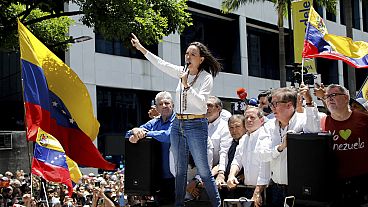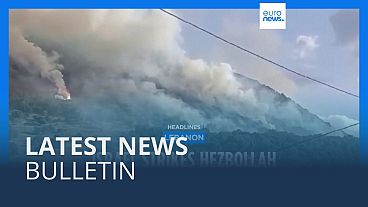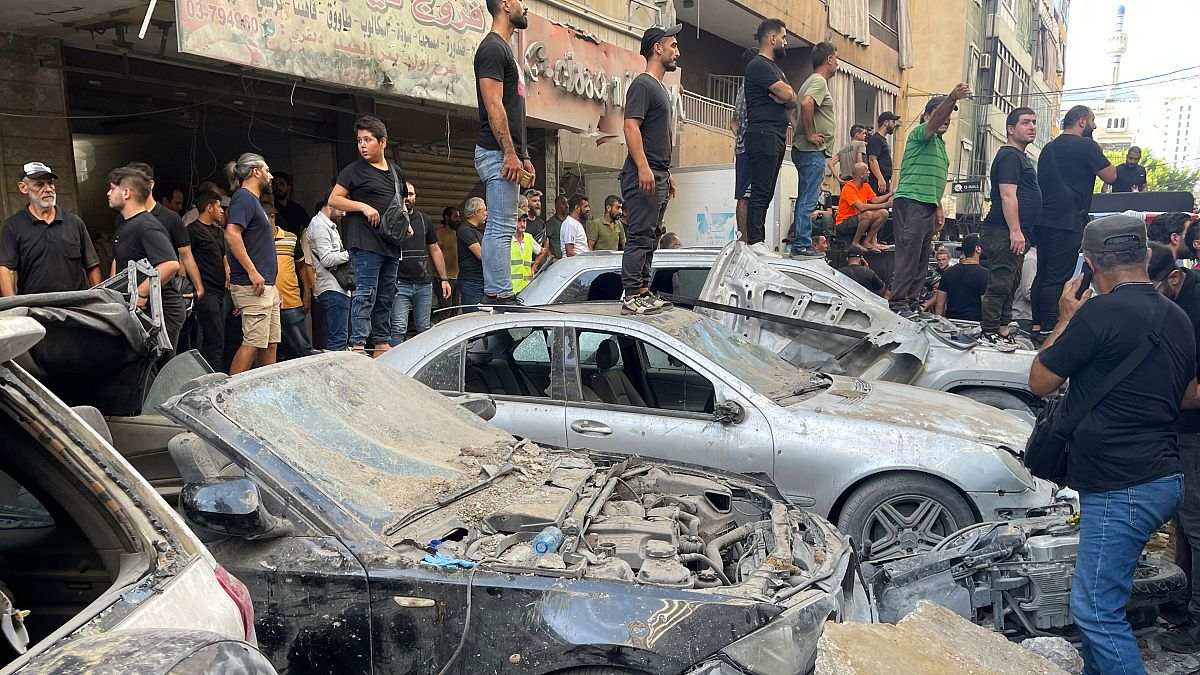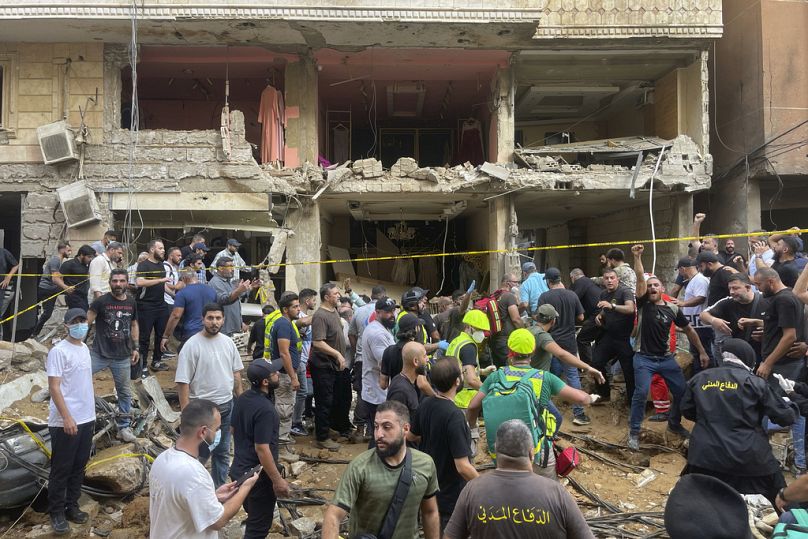Remotely-operated attacks using exploding pagers and walkie-talkies have given way to direct air strikes as fears of all-out war between the two neighbouring countries keep rising.
Lebanese health authorities reported that at least three people were killed and more than a dozen others wounded in an Israeli strike on Beirut on Friday, the first such Israeli attack on the Lebanese capital in months.
The Israeli strike comes in an atmosphere of violence and heightened tensions. The region is awaiting the revenge promised by the militant group's leader, Hassan Nasrallah, for this week's mass bombing attack on pagers and walkie-talkies belonging to Hezbollah members.
The strike hit Beirut's crowded southern suburbs during rush hour, as people were leaving their work and students heading home from school wasn't immediately clear. Lebanon's Health Ministry didn't elaborate on the identities of the victims.
The Israeli military said it had carried out a "targeted strike" in Beirut. It offered no further immediate details, but explosions could be heard coming from the city's southern suburbs.
Lebanese news stations broadcast footage of wounded people being pulled from the ruins of a flattened building as ambulances rushed to the scene of the strike.
Beirut-based Al-Mayadeen TV reported that a drone fired several missiles on the heavily populated area known as Dahiyeh.
The strike came after Hezbollah pounded Israel with 140 rockets, which the Israeli military said came in three waves, targeting sites along the ravaged border with Lebanon.
Following the attacks, the Israeli military said that it had struck areas across southern Lebanon targeting Hezbollah infrastructure but didn't provide details of damage.
Hezbollah said that its attacks had targeted several sites along the border with Katyusha rockets, including multiple air defence bases as well as the headquarters of an Israeli armoured brigade they said they'd struck for the first time.
The Israeli military said that 120 missiles were launched at areas of the Golan Heights, Safed and the Upper Galilee, some of which were intercepted, and that fire crews were working to extinguish blazes caused by pieces of debris that fell to the ground in several areas.
The military didn't say whether any missiles had hit targets or caused any casualties.
Another 20 missiles were shot at the areas of Meron and Netua, and most fell in open areas, the military said, adding that no injuries were reported.
Escalation continues
Hezbollah said that its rocket attacks were in retaliation for Israeli strikes on villages and homes in southern Lebanon, not two days of attacks widely blamed on Israel that set off explosives in thousands of Hezbollah pagers and walkie-talkies.
On Thursday, Israel said its military had struck "hundreds of rocket launcher barrels" in southern Lebanon, saying that they "were ready to be used in the immediate future to fire toward Israeli territory."
The army also ordered residents in parts of the Golan Heights and northern Israel to avoid public gatherings, minimise movements and stay close to shelters in anticipation of the rocket fire that eventually came Friday.
Hezbollah and Israel have exchanged near-daily fire since 8 October last year, a day after Hamas militants stormed over the barrier between Israel and Gaza and massacred some 1,200 people, abducting scores of others. However, Friday's rocket barrages were heavier than normal.
In recent days, Israel has moved a powerful fighting force up to the Lebanese border. Officials have escalated their rhetoric, and the country's security cabinet has designated the return of tens of thousands of displaced residents to their homes in northern Israel an official war goal.
Nasrallah on Thursday nonetheless vowed to keep up daily strikes on Israel despite this week's deadly sabotage of its members' communication devices, which he described as a "severe blow."
At least 20 were killed in the attacks and thousands were wounded when pagers, walkie-talkies and other devices exploded in Lebanon on Tuesday and Wednesday. Israel has neither confirmed nor denied its role in the attacks.













